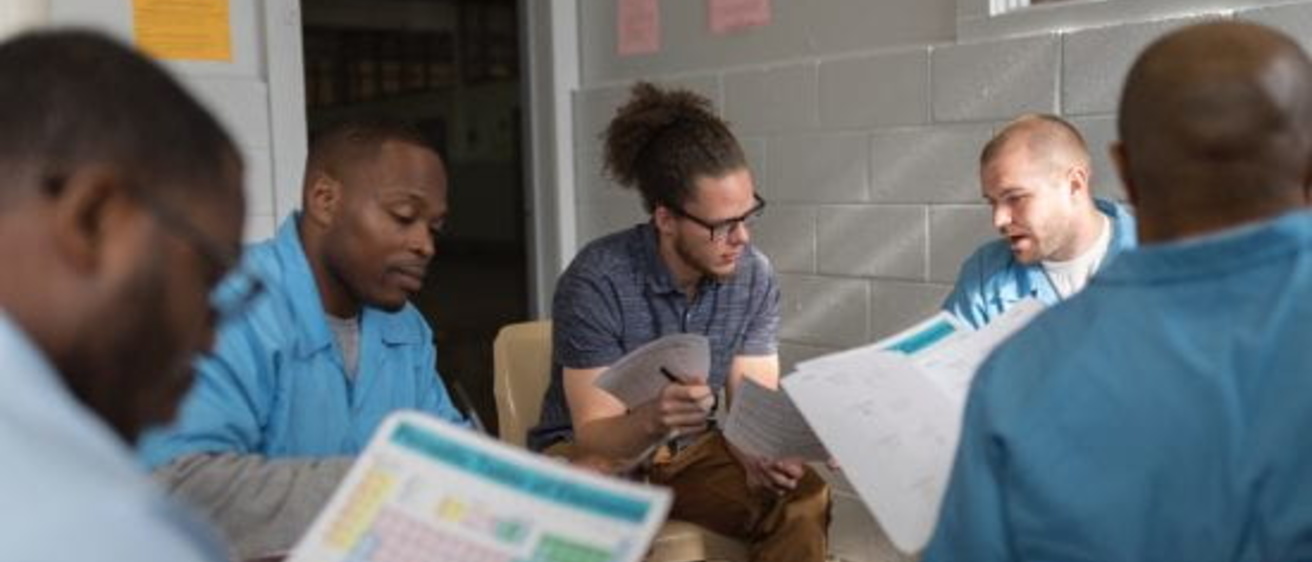In order to understand and amplify our Obermann Working Groups and their diverse activities, this spring we are spotlighting a number of newer groups. For this issue, we talk with Heather Erwin (Library & Information Science), who co-directs the Transform(ED) Justice Collaboratory group along with Daria Fisher Page (Law).
Q: This is the first year of your Working Group. What led you to start it?
A: This group evolved from the Liberal Arts Behind Bars (LABB) Working Group, whose goal was to advance the work of serving incarcerated students. With the reinstatement of Pell Grant eligibility for incarcerated students and the Reimagining Campus Safety initiative on campus, there are many opportunities to work toward building a campus community that prioritizes inclusivity and support for people impacted by the criminal legal system. The mission of the Transform(ED) Justice Collaboratory is to work toward abolition by building supportive communities based on evidence created through research, and by generating policy that creates necessary change.
Q: What kinds of people from which disciplines are participating in your Group?
A: We made a conscious choice to invite faculty, staff, current students, and alumni who may be impacted by the criminal legal system in some way themselves and are working to advance support for and research around the needs of people who are systems-impacted to participate in the Working Group.
Q: What is the current focus of your work together?
A: We spent most of last semester working on organizing and outreach. This semester is dedicated to more specific project-building work.
Q: What excites you about this topic and the possibility for either future research or campus change?
A: Our group is all about building opportunities for collaboration, which is why we use the word "collaboratory" as part of our title. We are working to create ways for students to be involved in faculty-led research that will lead to policy changes both on campus and at the state and national levels. We are asking questions about the university’s engagement with the carceral system: Should the university have to buy furniture from Iowa Prison Industries? Should our college application ask about criminal history, and if it does, how are we using that information? We are also working to build campus/community partnerships and broader coalitions that further explore extended support services and research opportunities.
Q: Please suggest one thing that a person less familiar with this topic might look at to better understand the issues of interest to your group.
A: We would suggest reading The New Jim Crow by Michelle Alexander, Are Prisons Obsolete? by Angela Davis, and Until We Reckon by Danielle Sered.
